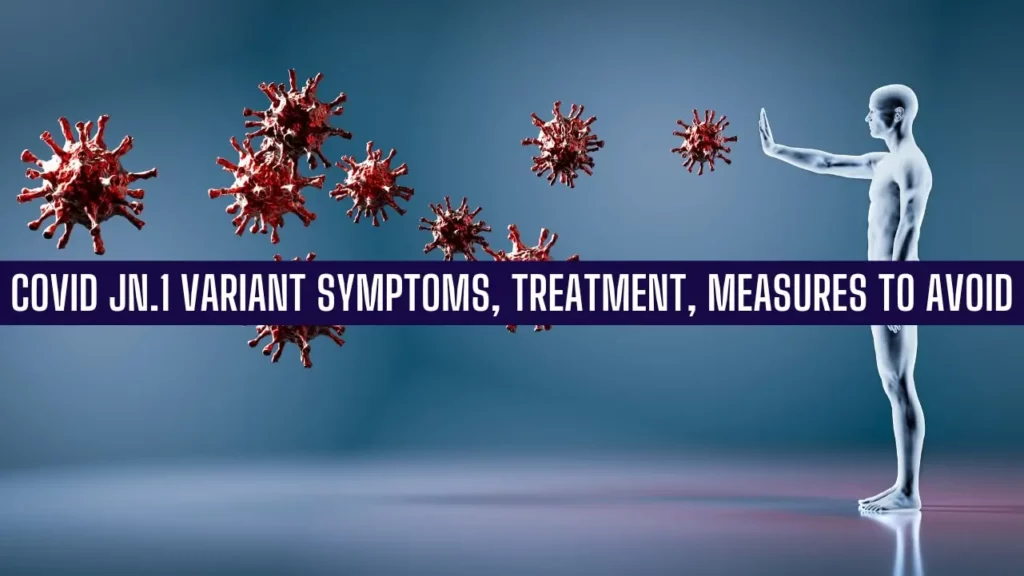As COVID-19 spreads nationwide, an extremely mutated new strain known as JN.1 has surfaced, quickly becoming the fastest-growing variant in America. However, experts do not advise panicking just yet as its rapid expansion won’t likely cause hospitalizations or deaths; moreover, no increased contagiousness was noted among subvariants; all COVID-19 diagnostic tests should detect it as part of its subvariants’ classification system.
Symptoms of Covid-19 variant JN.1
According to WHO, the symptoms of this Covid-19 variant can be mild to severe. Here are some common symptoms:
- Fever
- Headache
- Cough
- Muscle aches
- Sore throat
- Runny nose
- Some people might lose taste or smell.
- The new variant may induce nausea and lack of appetite.
- Mild nausea, vomiting, or diarrhea may occur in some persons.

What is causing the sudden spike in COVID-19 cases?
The significant increase in COVID-19 cases in India is related to the emergence of coronavirus subvariant J.1 from the Omicron virus in Kerala. In September, the variation was discovered in the United States and China. The mutation was detected after regular COVID-19 test sample surveillance by the Indian SARS-CoV-2 Genomics Consortium.
JN.1 variant is closely related to another strain we’ve encountered: BA.2.86 — also known as Pirola — which the CDC has been tracking on their viral data tracker since August. Although their names sound similar, these two strains differ only by one mutation in their spike proteins that help the virus attach itself to cells.
Consult a doctor if you are suffering any of the symptoms listed above.
How to protect yourself against COVID-19 variants?
- Wear Masks
- Social Distancing
- Boost your immunity
- Exercise Regularly
- Get Vaccinated
- Maintain proper Hygiene
- Maintain proper Diet
- Avoid Large gatherings
- Testing and Self-Isolation
How can I test for COVID-19?
The following tests can be used to confirm a COVID-19 infection.
- COVID-19 rapid test kit with nasal swab.
- COVID-19 RT-PCR using nose and throat samples at home or at a COVID-19 Center.
Contact your healthcare provider for additional treatment and management if you have been diagnosed with COVID-19.
Should We Be Concerned of New Year’s Eve Celebrations?
Health Ministry issued a statement, “Considering the upcoming festive season, there is a need to put in place requisite public health measures and other arrangements to minimize the risk of transmission of the disease by adherence to the maintenance of respiratory hygiene.”
Laboratory, community, and sewage-level heightened surveillance is continuing as before, according to the Health Ministry. It has mandated that all healthcare institutions regularly record and report instances of influenza-like illness (ILI) and severe acute respiratory illness (SARI) by district. This reporting must include uploads to the Integrated Health Information Platform (IHIP) portal. This is essential in spotting the early upward trend of instances.
The flu season is right in the middle of winter. Controlling the spread of the virus requires people to be able to distinguish between different symptoms and to be tested correctly.
But the new COVID variation JN.1 shows that the epidemic is far from over. Therefore, we need to be careful to avoid serious health problems. You should be informed of the most recent news from government leaders, the World Health Organization, and health authorities.
